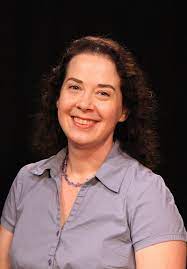Margaret (Meg) Artman serves as faculty advisor to The Insight, the student-run newspaper of Daemen College, which just published its most recent issue.
It’s a fitting role for the assistant professor of English; Artman was a frequent contributor to her undergraduate campus publication, Flyer News, at the University of Dayton.
“I practically lived in the newspaper office,” said Artman. “You start with nothing every time—and then, at the end—you have something you did as a group together. And you feel a bond.”
As newspaper advisor at Daemen, Artman teaches basics of journalism as students pitch their own story ideas, interview sources and write copy—while practicing basic concepts, such as the Inverted Pyramid.
But it’s not all journalism for Artman. As a professor, she teaches a range of writing styles and genres so students can adapt to an array of professional situations.
“It’s about how you make writing accessible to your readers,” she said. “Always.”
Artman also conducts original academic research, which focuses on the improvement of teaching leading to better outcomes for students—a concept that took on new meaning for her during the pandemic.
“This was the most challenging teaching experience of my 25-year career,” said Artman. “This year helped shape our focus as educators and came to be about caring and helping each other get through this together.”
Touching on aspects of the pandemic, the stories in the most recent Insight issues provide a snapshot of Daemen in the time of COVID-19; as journalism is often seen as history’s first draft, there is a certain responsibility for news stories to reflect reality through factual information and multiple viewpoints, Artman said.
Yet, as much as media has changed since Artman worked on her college newspaper in the early 1990s, there are certain aspects—like the burden to remain objective—that have stayed the same:
“People have never liked the press,” said Artman. “They’re the ones asking the difficult questions—or should be.”


